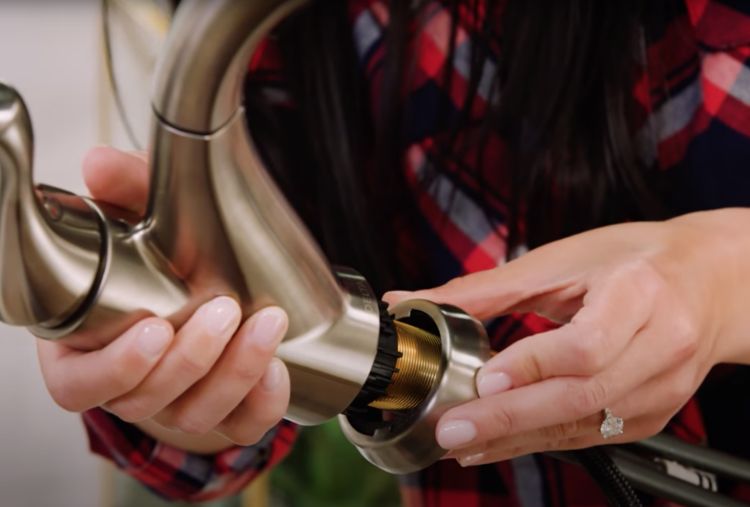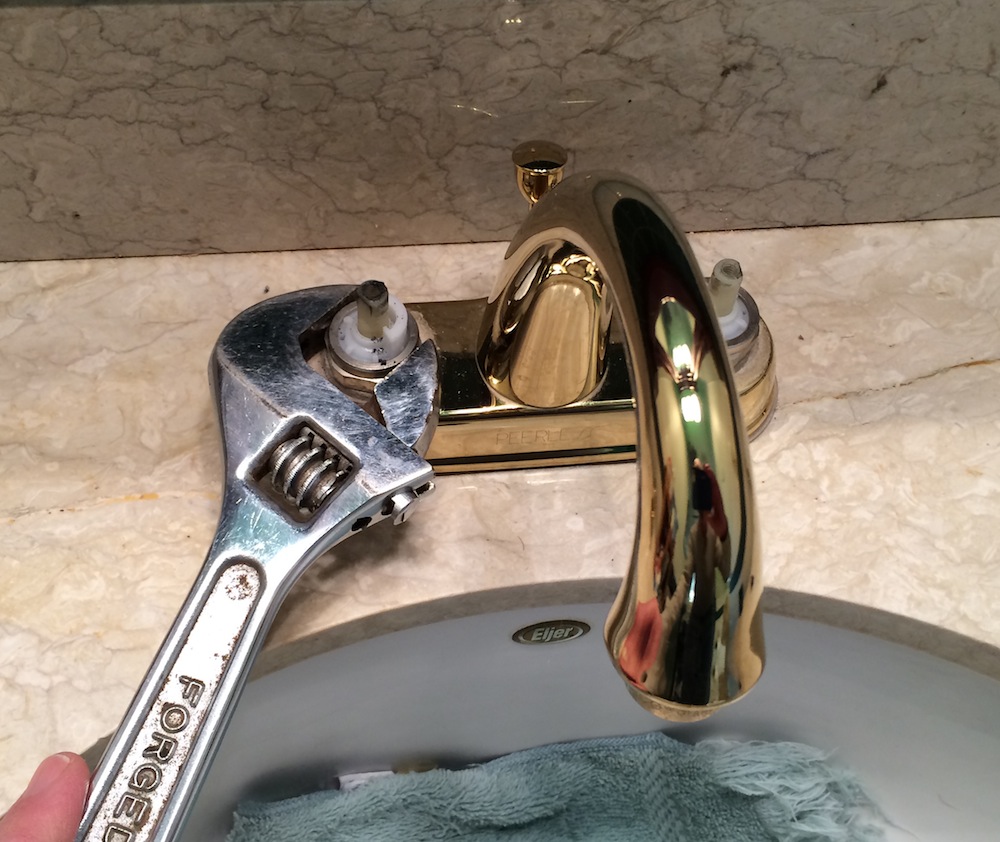We have noticed this article involving How to Fix a Dripping or Leaky Faucet listed below on the web and decided it made good sense to relate it with you over here.

Dripping taps could look like a minor hassle, but their impact goes beyond simply the aggravation of the audio. From drainage to incurring unnecessary financial costs and wellness threats, neglecting a dripping tap can bring about different repercussions. In this short article, we'll delve into why it's crucial to resolve this typical home issue promptly and properly.
Waste of Water
Environmental Effect
Leaking faucets add substantially to water wastage. According to the Epa (EPA), a solitary faucet dripping at one drip per secondly can squander more than 3,000 gallons of water each year. This not only pressures water sources yet likewise affects ecosystems and wild animals based on them.
Step-by-Step Overview to Taking Care Of a Dripping Faucet
Devices Required
Prior to attempting to fix a leaking faucet, gather the essential tools, consisting of an adjustable wrench, screwdrivers, substitute parts (such as washing machines or cartridges), and plumber's tape.
Typical Tap Issues and Their Solutions
Determine the type of faucet and the specific problem causing the drip. Typical issues include worn-out washing machines, corroded shutoff seats, or defective O-rings. Describe producer guidelines or online tutorials for detailed guidance on repair services.
Financial Costs
Boosted Water Bills
Past the environmental effect, leaking faucets can blow up water costs considerably. The gathered wastage gradually equates right into higher energy expenses, which could have been stayed clear of with prompt repairs.
Potential Building Damage
Additionally, long term dripping can result in damage to fixtures and surface areas surrounding the tap. Water accumulation can cause staining, rust, and even architectural issues if left ignored, leading to extra fixing costs.
Wellness Concerns
Mold and Mildew Development
The constant existence of dampness from a trickling tap produces an ideal setting for mold and mildew development. These fungis not only jeopardize interior air high quality but additionally pose wellness dangers, specifically for people with breathing problems or allergic reactions.
Waterborne Diseases
Stationary water in leaking faucets can become a breeding place for bacteria and various other pathogens, raising the threat of waterborne diseases. Impurities such as Legionella germs flourish in stationary water, possibly bring about serious ailments when consumed or breathed in.
Do it yourself vs. Specialist Fixing
Pros and Cons of Do It Yourself Repair
While some might try to deal with a dripping faucet themselves, DIY repair work include their very own collection of difficulties. Without appropriate knowledge and tools, do it yourself efforts can intensify the problem or bring about insufficient repair services, lengthening the trouble.
Advantages of Employing a Specialist Plumber
Working with a professional plumber makes sure that the underlying source of the trickling tap is attended to successfully. Plumbing professionals have the competence and devices to diagnose and repair tap concerns successfully, saving time and reducing the risk of further damage.
Ecological Obligation
Specific Payment to Conservation
Taking obligation for repairing trickling faucets straightens with wider initiatives toward water preservation and ecological sustainability. Every individual's activities collectively make a substantial impact on maintaining valuable resources.
Lasting Living Practices
By prioritizing prompt repair services and adopting water-saving habits, people add to sustainable living techniques that benefit both existing and future generations.
Preventive Measures
Routine Upkeep Tips
To avoid trickling taps, perform regular upkeep such as cleaning up aerators, examining for leaks, and changing worn-out components immediately. Additionally, take into consideration setting up water-saving tools or upgrading to much more efficient fixtures.
Importance of Prompt Repair Works
Dealing with leaking taps as soon as they're discovered avoids more water waste and potential damage, inevitably saving both water and cash over time.
Impact on Property Value
Understanding of Well-Maintained Property
Maintaining a building in good condition, consisting of dealing with upkeep concerns like dripping taps, boosts its regarded worth and worth amongst prospective purchasers or occupants.
Impact on Resale Worth
Properties with well-kept plumbing fixtures, consisting of taps, command greater resale worths in the realty market. Attending to trickling faucets can contribute to a favorable impact during residential property inspections and arrangements.
Conclusion
Addressing a dripping tap goes beyond plain comfort; it's a necessary step towards preserving water, decreasing economic costs, and protecting wellness and residential or commercial property. Whether with DIY repair work or professional assistance, doing something about it to take care of trickling faucets is a little yet impactful means to promote responsible stewardship of resources and add to a healthier, much more lasting future.
How to Fix a Leaky Faucet: Step-by-Step Repair Guide
A leaky faucet may seem like a simple annoyance, but if it's not fixed promptly, that leak could cost hundreds to potentially thousands. From water damage to mold, mildew, and high water bills, even a tiny leak can be catastrophic if left unattended. Damage like this can even affect the overall value of your home, so it's important to take the right approach for leaky faucet repair. You may need the help of a plumber in some cases, but we've got a few tips you can try on how to fix a leaky faucet before calling the pros.
Four Faucet Types
When you're learning how to fix a leaky faucet, the first step is knowing what kind of faucet you're working with! There are four common types.
Cartridge Faucets
Cartridge faucets come in one- or two-handled varieties. In one-handled cartridge faucets, hot and cold water combines in a single cartridge. In the two-handled versions, hot and cold water are controlled separately and mixed in the faucet.
Ball Faucets
Ball faucets have a single lever you push up and down to adjust the pressure and rotate to change the temperature. A slotted metal ball controls the amount of water allowed into the spout.
Compression Washer Faucets
They're the oldest type of faucet, but they're still used in many homes — especially older ones. Compression faucets have two separate handles that, when turned, raise or lower the washer that seals a water valve. This valve stops water from flowing through the faucet when it is turned off.
Disc Faucets
Disc faucets rarely need to be repaired due to their maintenance-free design. The water flow is controlled by two discs — the upper one raises and lowers against a fixed lower disc, creating a watertight seal. If your disc faucet starts leaking, you may need to replace the seals or clean residue buildup from the inlets.
Fixing a Leaky Faucet
Step 1: Turn Off the Water
Whether you're learning how to fix a leaky bathtub faucet or how to fix a leaky kitchen faucet, always turn off the water supply to your working area when you're fixing a leak. The last thing you want is a flood added to your list of things to fix.
Look for the shutoff valves below your sink or around the tub and turn them clockwise to stop the water flow. If your faucet doesn't have shutoff valves, you may need to turn off the water for the whole house. Check to make sure it's off by turning the faucet on. If nothing comes out, you're ready to start the repair.
Step 2: Take Apart the Faucet
How you disassemble your faucet depends on the type of fixture you have. You can use a flathead screwdriver to remove the caps on top of the handle or handles for cartridge and compression faucets. Inside, you should see handle screws. Unscrew these with a screwdriver to remove the handle.
Disc- and ball-style faucets will typically have an inlet screw near the handle, and removing that will reveal the interior of the faucet.
Detach the Valve Stem
For cartridge- and compression-style faucets, you'll see the inner valve stem or cartridge once you remove the faucet handles. If you have a compression faucet, unscrew the brass valve stem. If you have a cartridge faucet, pull out the cartridge. If your cartridge has been in place for a while, it may require some tools or extra force to remove it due to mineral deposits.
Examine and Replace Parts
Once you've removed the parts, check them out to confirm what needs to be replaced. You may see corroded rubber washers, O-rings, stems, or cartridges. On a ball-style faucet, check the seats and springs for damage.
If you need to repair a leaky disc faucet, check the inlet and seals on the lower disc.
Once you determine what parts must be replaced, visit your local hardware store. Bring the damaged parts with you to ensure you can purchase the correct components to replace them.
Clean Valves and Faucet Cavity
If you've removed a stem or cartridge, you may notice mineral buildup in the faucet's threads. Use white vinegar to clean the valve seat by soaking it for a few minutes, then scrub it away with a soft toothbrush and rinse with warm water. You can also clean the interior of the faucet in the same way.
Reassemble the Faucet
Once your faucet is cleaned and the required parts have been replaced, it's time to reassemble it. Put the pieces back together and slowly turn the water supply back on. Doing this slowly is crucial because too much initial water pressure can damage the new hardware you've just installed.
https://homewarranty.firstam.com/blog/how-to-fix-leaky-faucet

We are very involved in What Causes Leaky Faucets & How To Fix Them and I'm hoping you appreciated the entire blog entry. Those who enjoyed our post if you please do not forget to pass it around. Many thanks for your time. Kindly come visit our blog back soon.